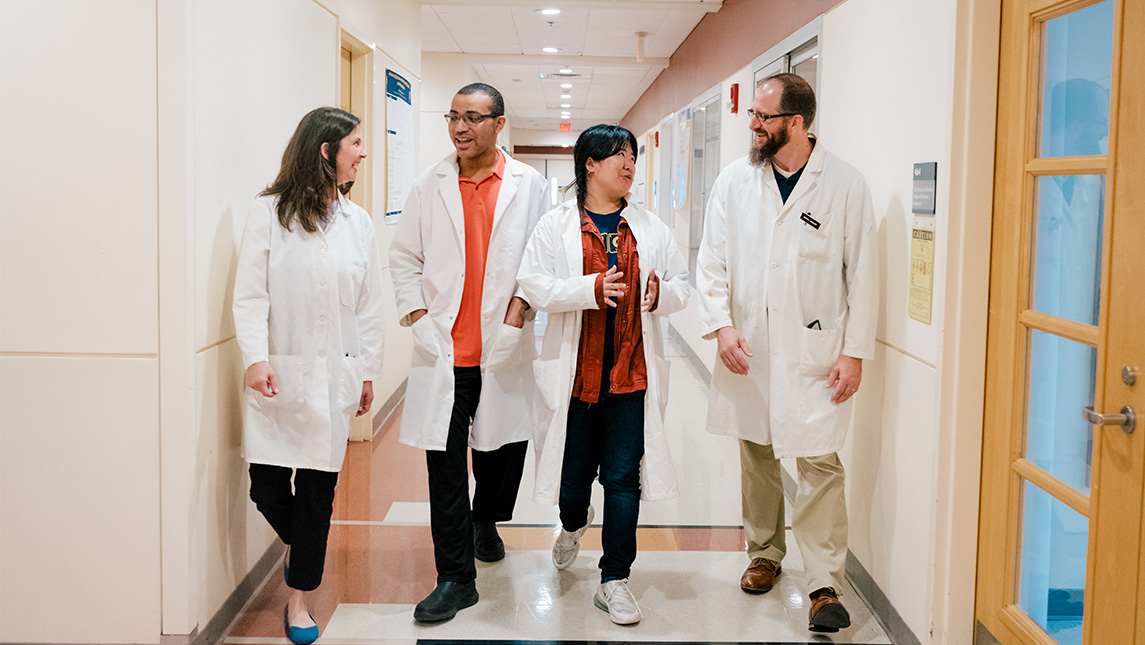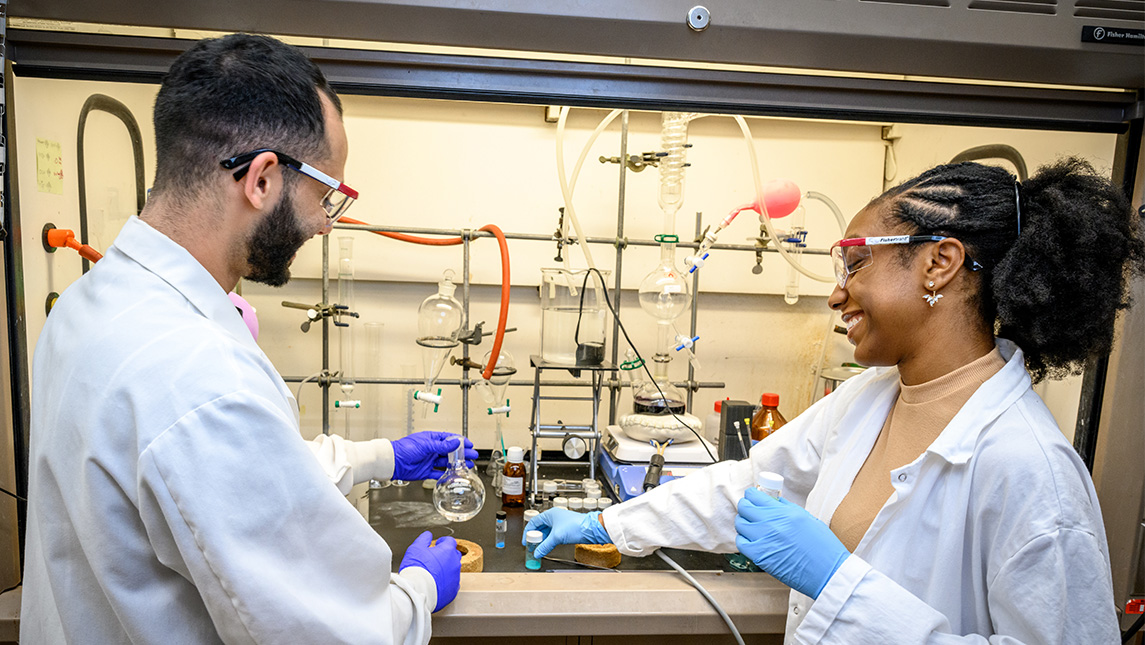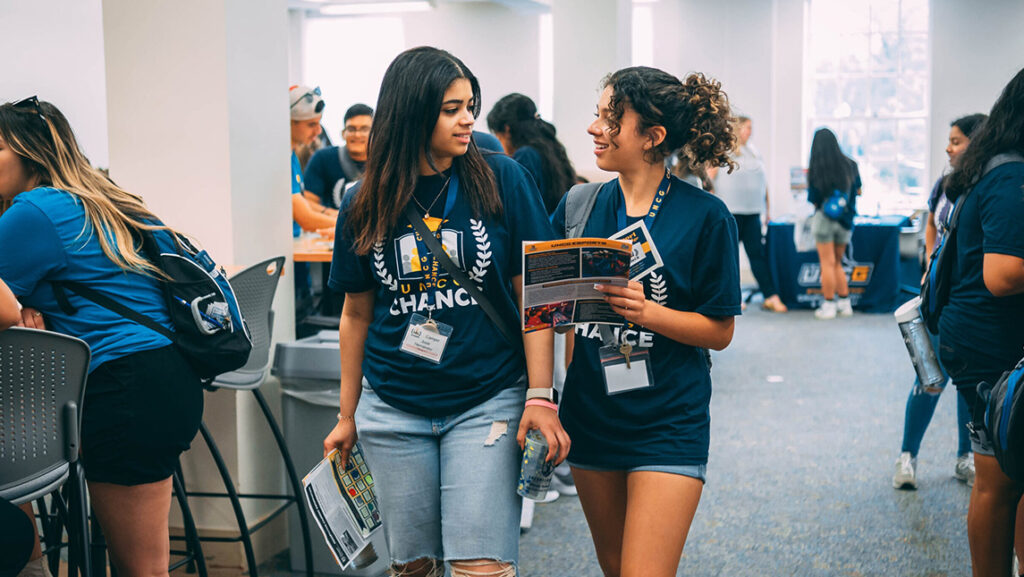As it should be, diversity is a powerful topic in the nomenclature of higher education. It spurs the forming of faculty committees, the writing of initiatives, and the submissions for awards.
It’s not difficult for universities to say they are working on it. Constant study, experimentation, and free exchange of ideas is what institutions of higher education live for. Alternatively, it’s truly remarkable to find that the work is becoming the fabric of who and what a university is. When this happens, it changes the way concepts are taught and what students are inspired to do with their degrees.

The Department of Chemistry and Biochemistry is an example of a UNCG community where diversity, equity and inclusion (DEI) are more than just theories, but practices that make a difference for its students. Departments like this one illustrate why UNC Greensboro just won its sixth consecutive Insight into Diversity’s Higher Education Excellence in Diversity (HEED) award, a national honor recognizing U.S. colleges and universities that demonstrate an outstanding commitment to diversity and inclusion.
Representation Matters
Chemistry and biochemistry’s DEI statement leads with its strong representation of women in tenured faculty (43%) and students (50% of grad students and 63% of undergraduates), and the racial and ethnic diversity of its students. Sixty-six percent of undergraduates and 58% of graduate students self-identify as people of color. This broad representation of professionals, particularly in a STEM (Science, Technology, Engineering and Mathematics) field speaks to students.
“Coming to UNCG and seeing so many people that look like me, people of color and women doing science in higher ed careers, was really inspiring,” says T’ea Cameron, a third-year chemistry doctoral student.
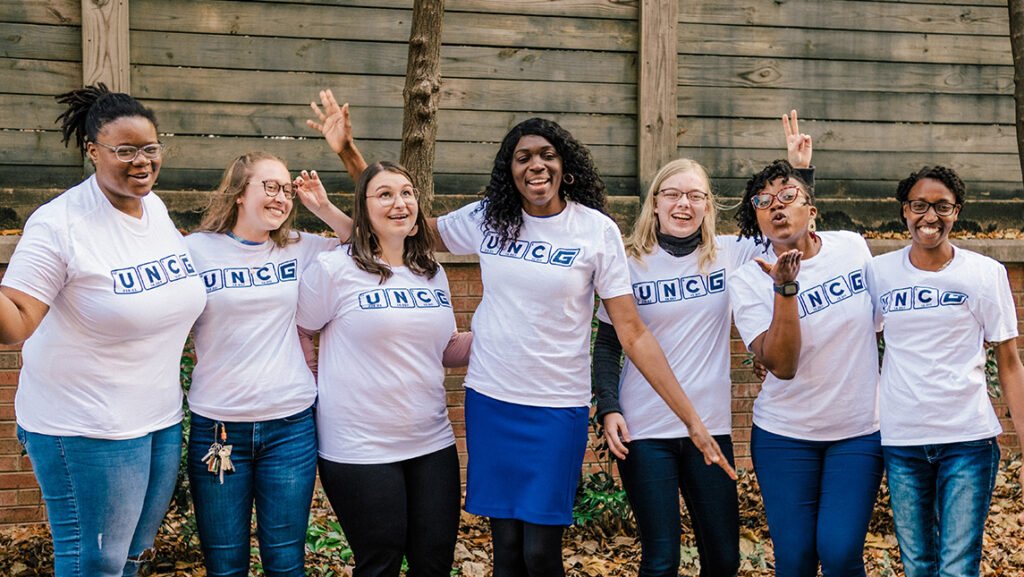
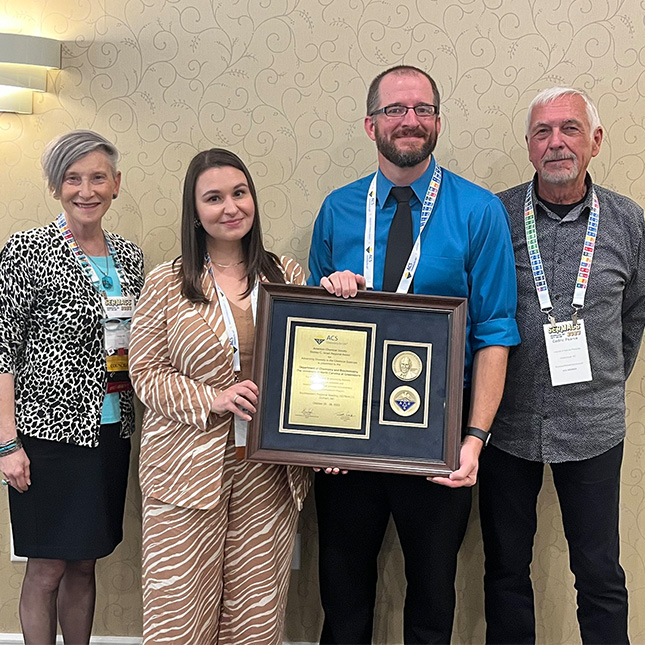
The department’s diversity, collaboration through research labs, use of funding to increase academic access to underserved student groups, and social initiatives that elevate unity within the department led to its recent Stanley C. Israel Regional Award for Advancing Diversity in Chemical Sciences recognition.
The prestigious award, which will be presented at the annual Southeast Regional Meeting of the American Chemical Society, is generally given to individuals who qualify and comes with a $1000 award designated for equity programs. This is the first time a department has won the award.
Dr. Maia Popova, chair of the department’s DEI committee, is proud of her department’s achievement and credits a strong graduate student group for setting the tone.
“Our graduate students are so active and passionate about DEI issues,” says Popova. “Seeing leadership come from students as well as faculty, makes this a wonderful space to be in.”
Winds of Change
Four of the graduate students that Popova refers to were instrumental in creating a chapter of the National Organization for the Professional Advancement of Black Chemists and Chemical Engineers (NOBCChE) this year.
In 2022, doctoral students T’ea Cameron, Keelie Butler, Tamera Jones, and Herma Pierre attended the NOBCChE conference in Orlando, Florida. They presented research projects and participated in career networking seminars with professionals and students of color from across the country.
“At NOBCChE, you connect with scientists at all stages of their careers,” says Cameron. “It was exciting to see how they transition from school to careers and learn about all the post-graduate opportunities available to us.”
The conference wrapped as Hurricane Ian threatened the Florida coast. When the airports closed, the students rented a car for the long drive home.
“It was a nerve-wracking drive, but we were so excited. We had nine hours to work out the details of initiating a NOBCChE chapter at UNCG,” explained Keelie Butler. “As a minority serving institution, we knew UNCG graduates and undergraduates would benefit from a NOBCChE chapter. We couldn’t wait to bring the tools we received at the conference back to students below us and help them succeed.”
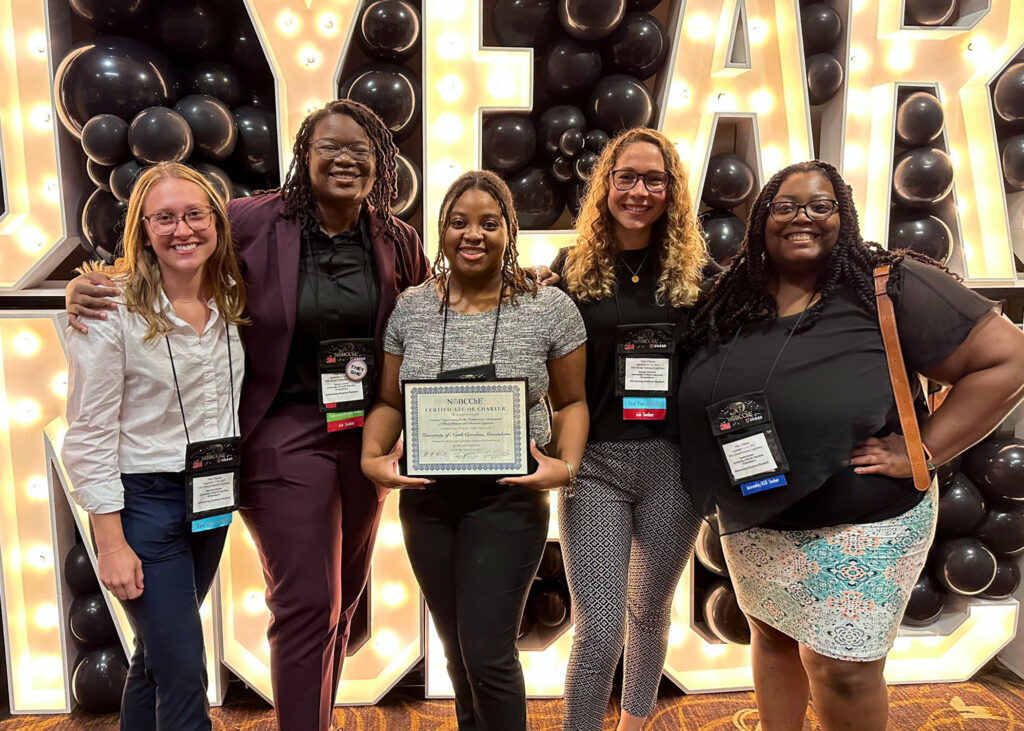
Equity Though Mentorship
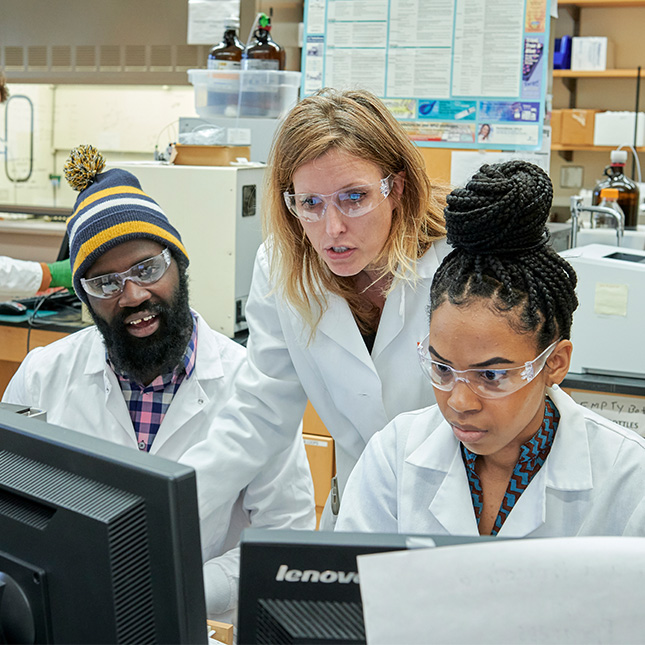
Mentorship is something students learn from their first day in the chemistry and biochemistry department. Faculty, graduate students, and undergraduates work together on research projects, allowing students to benefit from the advice of others while practicing their knowledge by helping younger students. Mentorship strengthens the inclusion and equity in the department, and it also broadens the way concepts are taught.
“I’ve seen students shut themselves off from science spaces when they are taught that there is only one way to learn something,” says Cameron. “But when students can be taught by someone closer to their peer group, who can explain a concept in a different way, it makes science more inclusive. My perspective can bring more people into science. From me, they may learn a different way to get to the same answer and see a future in the field.”
Students praise the faculty in chemistry and biochemistry for finding funding when they need it and keeping an open mind when it comes to new ideas.
“Dr. Oberlies told us that he would find funding for us to attend the 2023 NOBCChE conference in New Orleans, as long as we brought back ideas that will make our department better,” says Butler. “The faculty’s willingness to listen and consider new ways of operating is a key element of diversity in this department.
They are also impacted by social opportunities organized by faculty and students, which is extremely important in a group that is so diverse. It contributes to the overall morale in the department.
“We get together for sports activities like kickball. We went to the Folk Festival last month,” explains Cameron. “This way, we can get to know each other outside of the lab. We’re not just inclusive on paper.”
Story by Becky Deakins, University Communications.
Photography by Martin Kane, University Communications, unless otherwise noted.
